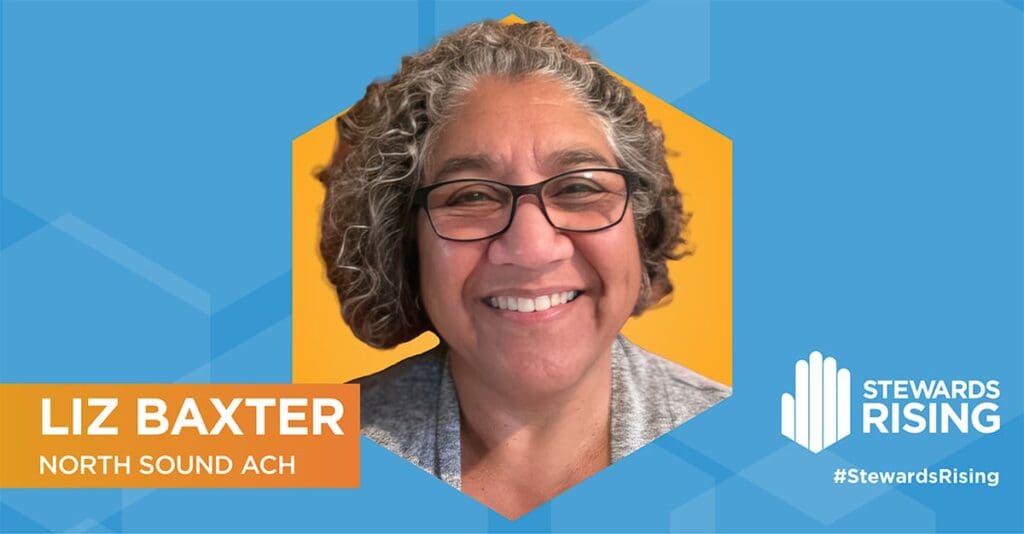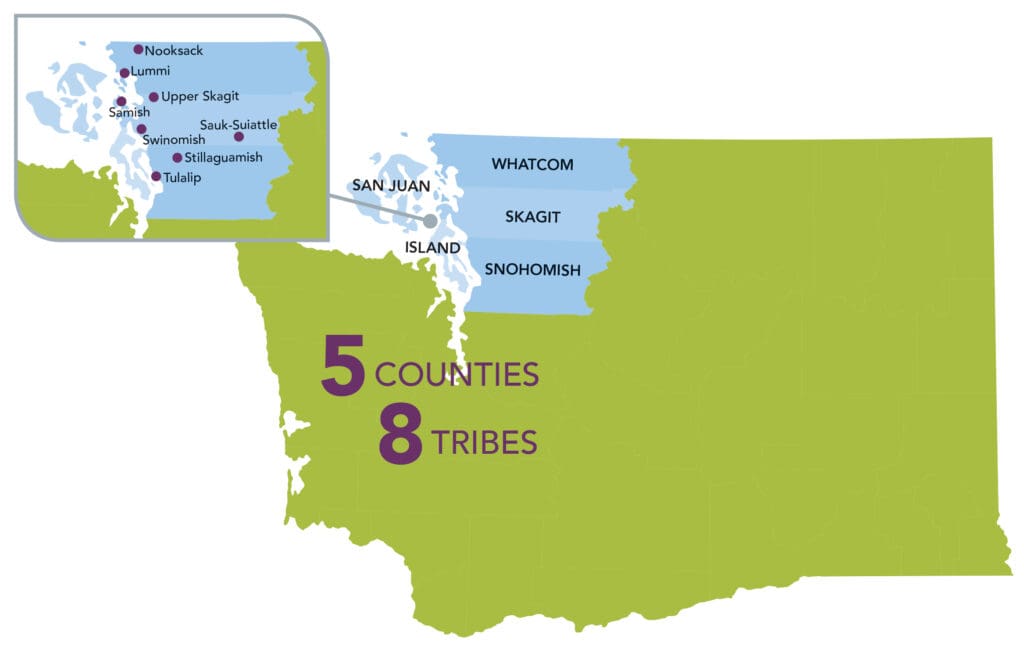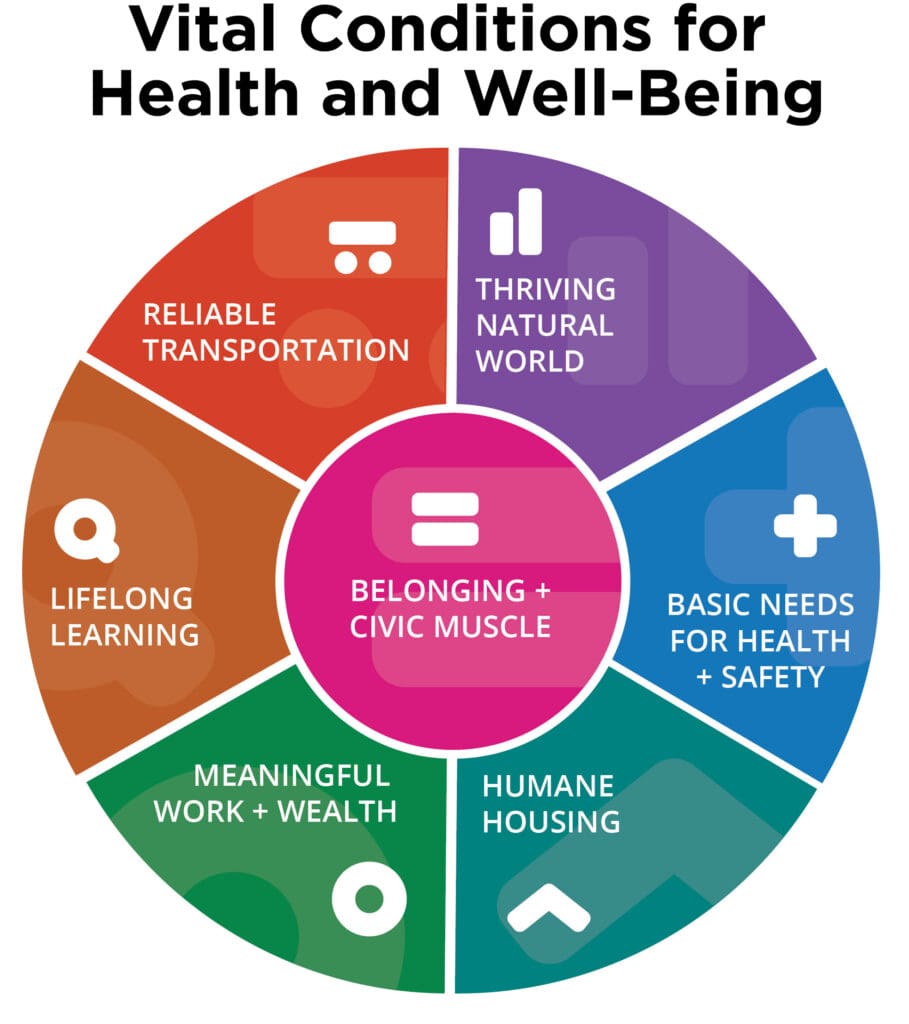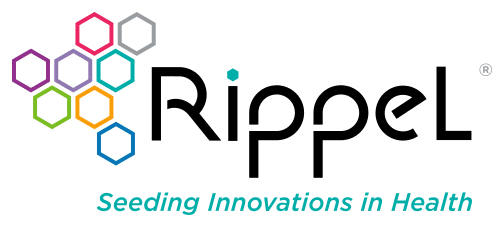Interdependence Runs Deep in North Sound, WA

Liz Baxter, CEO, North Sound ACH
Liz Baxter, CEO of North Sound Accountable Community of Health, is leading the organization beyond a traditional nonprofit approach to cultivate an entire health and wellness ecosystem. It’s a model of interdependence that values people with lived experience, Tribal wisdom, and the Vital Conditions for Health and Well-Being as the pathway for all people in all places to thrive.
Liz Baxter’s superpower is curiosity. It’s a trait she learned from her mom. “She taught me that if you don’t ask, the answer is always no,” Liz said. “The right question can open a lot of doors and opportunities. It’s the beginning of disruptive innovation, no matter how small.”
Liz used her superpower for something big in her personal life. In 1993, she and her partner were the first same-sex couple to jointly adopt a child from Oregon’s foster care system. At the last stage of a long and complicated adoption process, they were presented with a birth certificate form and asked who would be identified as the mother and father, respectively. Liz asked, “What's the possibility of this birth certificate just saying parent and parent?” The change was made to the state form immediately so both are listed as parents.
"There's a part of me that believes anything is changeable." - Liz Baxter

Accountable Communities for Health (ACHs) are multisector, community-based partnerships that bring together health care, public health, social services, other local partners, and residents to address the unmet health and social needs of the individuals and communities they serve.
Liz brought the same curiosity and tenacity to the newly formed North Sound Accountable Community of Health (ACH) in Washington State when she became its first CEO in 2016. It’s a region with a complex system of waterways, islands, and peninsulas, where indigenous people have lived since time immemorial. A network of ferries and bridges connects urban and rural communities and eight Tribal nations across the traditional homelands of the People of the Salish Sea. The waterscape symbolized the network Liz sought to unite the region—one where the ACH would create cohesion across organizations, with a common, shared purpose.
Before the ACH had any significant funding to distribute, Liz brought together leaders from local Tribes, government, community-based businesses, and nonprofits. She asked questions intended to establish universal goals for everyone in the region and open the door for innovation and imagination. “What do we want the northern region to look like in 10 years? In 20?” she asked. “What is substantive change?”
Over a period of six years, the ACH received close to $100 million through the state’s five-year Medicaid Transformation Project. While other state ACHs focused on traditional system solutions for Medicaid waivers—providing services not usually covered by Medicaid—North Sound focused on relationships with partners who agreed to a set of equity strategies rooted in the Vital Conditions for Health and Well-Being. “The next really big idea might not be sitting inside of a Medicaid waiver,” she said. “It will be because two organizations that didn't know they existed on the same block are now working together in community.”
Upstream questions bring clarity and cohesion
In 2023, Washington was one of several states approved to launch a re-entry program that allows Medicaid funds to pay for health care inside prisons and jails prior to release. This opened the door for Liz and her team to connect organizations serving people in carceral facilities and ask questions about how to support them through a vital conditions lens as they re-integrate into communities.
Interdependence: Working together with a common, shared purpose; each organization has clarity about its own distinct, unique role and the roles of others, as well as a holistic understanding of how they interact to create cohesion across organizations.
The organizations “didn't see themselves as part of a health care system,” she said. “They just know that they're doing really important work that nobody pays for.” Liz asked, “How do we recognize your work? How do we pay for it?”
The answer came from an ACH partner, Underground Ministries: Rename the process. It’s not about re-entry. It’s about reintegration. “It changed our thinking about what was possible with the Medicaid expansion benefit,” Liz said. “And it allowed us to ask, who else is doing this work? We’ve found and connected an entire community of organizations and individuals.”
People with lived experience as former inmates, gang members, and people recovering from addiction are central to the ACH’s Medicaid reintegration approach. They understand how the vital conditions reduce recidivism—for example, access to driver’s licenses and transportation and developing a sense of belonging through relationships with peers before and after release.
The lived experience network is so crucial that Liz appointed them to a grant review committee to do more than guide. Now, they decide how the ACH distributes millions of dollars in reintegration funds. “They feel like they are a trusted member of a community that makes decisions,” Liz said.

Reflections of stewardship
Trust and power sharing have also been fundamental to cultivating interdependence with Tribal nations. When CMS required the state’s ACHs to add one Tribal leader to their boards, Liz added eight—one for each of the nations in her region. Board meetings are held on Tribal lands. And a partnership with Children of the Setting Sun, a Native-owned nonprofit, is taking staff and trustees on a Tribal equity learning journey.
When Liz talks about the relationships that have enriched and educated her the most, she looks to the Tribes. “They are used to working in collaboration,” she said, noting an integrated care program combining physical and behavioral health in one setting. “The Tribes don't have the separation of boundaries that our government systems do.”
Liz and her team are creating cohesion with the Tribes and with their health framework, the Medicine Wheel, rooted in Native American beliefs and traditions that encompass the whole person and community. A new ACH project is underway with the American Indian Health Commission to align the vital conditions with indigenous health indicators, a merging of cultures and approaches to health.
Being in relationship with the Tribes and building trust has led to a great honor for Liz and her team: They were invited to watch the final landing of a canoe journey, a multi-day native tradition for Coast Salish families to paddle in community with other Tribes across the Salish Sea, sharing songs, dances, and stories.
“It is the most outstanding thing to witness,” Liz said. “When we think of the people a generation ago who were prohibited by law from their languages and their practices, and then to watch multiple generations sharing traditional dance and language, it’s incredibly emotional.” Liz looks to the Tribes’ invitation as significant to their interdependence. “Stewardship is something that is reflected back to you,” she said. “For people to think of us as the connective tissue that sits among the work that we do is profound.”
